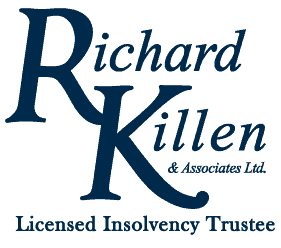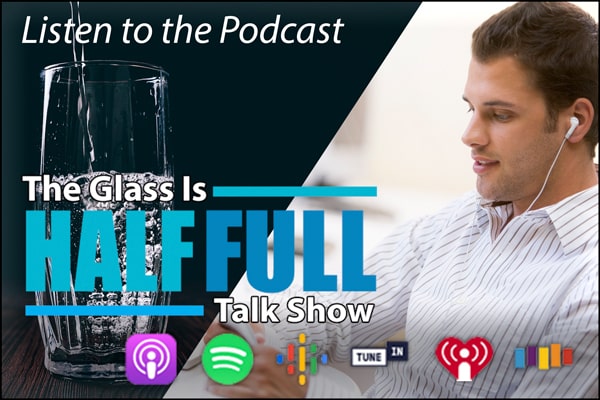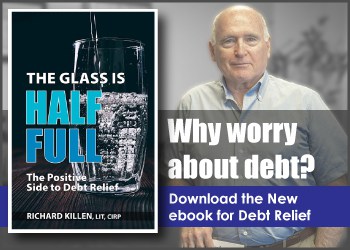How To Get A Mortgage with Bad Credit
Posted on: October 24, 2019Posted in Credit, Financial Advice, Interviews, Mortgage, Videos | Comments Off on How To Get A Mortgage with Bad Credit
| Richard | Today we have with us, David Grossman. He’s a mortgage broker with Rock Your Mortgage which serves the Greater Toronto Area. Dave has been arranging mortgages for people for over fifteen years now and he brings to us a wealth of experience and know-how to a business which I find somewhat mysterious and a little bit intimidating. |
| Richard | What Does A First-time Homebuyer Need To Know? |
| David | There are several things that lenders are looking for. Presumably, people would need a mortgage. Most people don’t pay cash. Therefore, they need to have savings of at least:
|
| Richard | Is there Anything Else They Need to Know? |
| David | Besides having a down payment, the other things that lenders are looking for are credit, income, and the type of property.
Credit Credit is important. People need to take steps to establish credit and maintain it. For a first-time homebuyer, lenders want to see that they have a history of at least a couple of years. The assumption is that people want to get mortgages from the bank or places like a bank, therefore, for those types of borrowers, they need to have about five to ten percent down payment. Income First-time borrowers need to have income too. If they are salaried, lenders want to see their job letters and pay stubs. If they’ve been in the job for less than one year, lenders would want to see some history of income. Moreover, people need to build up some credit. |
| Richard | If Borrowers Are Applying For Mortgages Through your Services, What Are The Mechanics of Doing It? |
| David | The first thing people usually do is give me a call. I’ve got a direct number that people can reach me on and I’d like to have a quick conversation with people to start. Within five to ten minutes, we can determine what’s the scope of what’s going on whether it’s a purchase or a refinance, or a pre-approval. We also take into account its urgency. Does somebody need the money to pay out a creditor in two days?
Once I know that there’s a potential deal, I will send people a two-pager application that they need to fill out and sign. Subsequently, I’ll give them a list of papers that we’ll need to go after the mortgage. |
| Richard | We were talking about this $75,000 down payment on a million-dollar home the downpayment to get a mortgage with a bank. There are other places where you can get mortgages. Do they not have similar requirements? |
CMHC Insurance and High Ratio Mortgages In Ontario |
|
| David | There are A-lenders. They are banks, credit unions, and trust companies. With those lenders, you can get high-ratio financing. A lot of people have heard of CMHC (Canada Mortgage and Home Corporation). It is a government-run and they’re there to help Canadians buy homes. |
| Richard | Is CMHC an insurance program? |
| David | That’s right. It’s an insurer, however, it’s not in the way that people normally think about insurance. Unlike life insurance or car insurance, it comes at a borrower’s expense but it protects the lender. |
| Richard | How does CMHC help the borrower? |
| David | It helps the borrower because now, they can get high ratio financing or small down payment. |
| Richard | What If They Still Want To Buy a Million-dollar Home? |
| David | They can get it with just $75,000 down payment with the insurance. If you don’t have insurance on it, you’ve got to have 20% down payment. |
| Richard | Is the Bank Mortgage through CMHC as well? |
| David | Yes. The $75,000 is for an insured mortgage. If you have enough money, you can get it uninsured and make at least 20% down payment. |
Mortgage requirements for Self Employed People In Ontario |
|
| Richard | You were telling me that there are papers that they need to bring to you. Are these requirements different if the borrower is self-employed? |
| David | There’s a key difference for self-employed people often in that self-employed people are going to minimize what they report for tax purposes. One of the benefits of being self-employed is that you can have legitimate tax expenses. Oftentimes, if a self-employed individual goes to the bank, the first thing the bank asks is their tax returns and notice of assessments. And the net income per the tax return and the notice of assessments are often not reflective of what’s happening.
Somebody could have $200,000 in sales and their net income is only $40,000. The bank looks at the $40,000 and may approve them for a $200,000 to $250,000 mortgage but this is somebody who might be able to afford $500,000 to $600,000 and wants a bigger home. Therefore, we have lenders which are not the prime banks. We have alternative institutional lenders. They charge between a half a point to a point more than the banks. They’ll also amortize the loan over a slightly longer period. Therefore, even though there’s a higher rate, the payment will still be affordable. This way, even self-employed people can get the mortgages that they want and still benefit from some of the tax write-offs. |
The 3 types of mortgage lenders in Ontario |
|
| Richard | You mentioned A-lender before and I’ve heard the term ABC. How many are there? |
| David | Some lenders can go to Z but I think A, B, and C are good categories. |
| Richard | Can you tell me who are they? What makes an A-lender, B-lender and what are some of the pitfalls that one might accrue to dealing with one or the other? |
| David | There are three different types of lenders. A-lenders are essentially prime lenders or bank type of lenders, which most people would like to get a mortgage from because that’s where they would get the best rates and the best terms. In that same category are credit unions, trust companies, and there are many institutions out there that we consider as A-lenders that people have never heard of that serve strictly the mortgage brokerage community. There’s no shortage of A-lenders out there but they look for people who have a good credit and provable income.
The next category is B-lender. A B-lender is also an institution who will take self-employed borrowers. They’re more flexible in how they look at income and credit. Hence, people who have credit issues might still be able to get a mortgage from a B-lender. B-lenders will charge a percentage point more or less premium over what the bank is charging. If you can get your loan from an institution, either an A or B-lender, that’s the best-case scenario. However, if you’re in a pinch, there are C-lenders which are also known as private lenders. Private lenders include individuals who just like to lend out money on mortgages and MICs which stands for Mortgage Investment Corporations that do private loans. These are high-risk types of loans that you wouldn’t be able to get from an institution so you pay higher rates. Moreover, you pay fees. They are more expensive and should be avoided, if possible. The other thing about private loans or the C-mortgages is that they’re usually short-term loans. Therefore, lenders will want to know how are you going to repay the loan. That’s an important question. As a borrower, if you need it as a bridge to get over a hump, then it’s alright. However, you have to think long-term. You need to take into account that private lenders don’t always want to renew and if they do their fees could be high. If you get a one-year term and that lender is not prepared to renew the loan at the end of the year, you need to have a plan to get out of that private mortgage either by refinancing at the end of the year or selling the property. |
| Richard | For anybody, whether they’re a first-time buyer or not, the ideal thing is to try and get an A-lender mortgage, right? |
| David | Ideally, you want an A-loan but I also deal with a lot of people who don’t mind dealing with B-lenders. they don’t mind paying a little bit higher because it allows them to save a lot of money on their taxes as they’re not shy about writing down the legitimate business expenses. They don’t mind paying a little bit higher rate if it gets them into the property that they want and can afford. |
The Mortgage Stress Test In Ontario Explained |
|
| Richard | A lot of people heard about the Mortgage Stress Test which is a relatively recent development. Can you explain that? |
| David | At the beginning of 2018, the Canadian federal government decided that they needed to take some steps to cool down the market. They implemented or imposed this stress test which applies to almost all institutional lenders except a few lenders that are provincially-regulated. However, the lion’s share of institutional lenders out there are federally-regulated.
It is called a stress test because you have to qualify for the mortgage as though it was 2 percentage points higher than the rates you are actually getting. For example, you’re borrowing at 3.5% and they look at what the payment is and figure out how much you can afford and how much mortgage they’re willing to give you. With the stress test, the rate goes up from 3.5% to 5.5% and then they look at how much they think you can afford and the result is that you could you can only get a smaller mortgage. That has really thrown a wet blanket on the real estate market. |
| Richard | If you’re borderline in terms of your means, this really might cramp your style. |
| David | Yes, it could definitely impact. But I think they’ve acknowledged that they’ve done enough to cool off the market, therefore, there’s a new incentive coming out to help first-time buyers. |
RESPs (Registered Education Savings Plan) |
|
| Richard | There’s a lot of public discussions about the government assisting people to be able to get into the market. What is it out there for people? |
| David | There’s a couple of things. First of all, there has been a program where you can use the money that’s in your RESPs (Registered Education Savings Plan). That’s been around for quite a few years. I think the maximum was $25,000 per person that you could take out of your RESP tax-free. You have over 15 years to put that money back into your RESP. I believe the government has just increased that to $35,000 per person.
There’s a new thing coming up very soon where the government is going to contribute like a partner in your home. If the family makes less than $120,000 a year and your down payment is 10% or less, they could potentially get part of that government program. |
| Richard | Is it repayable? |
| David | Yes, when you sell the house. You have like 25 years to repay the government, therefore, I think it’s a plus. It’s free money. They haven’t released all of the details yet but we should know more very soon. |
| Richard | They have a similar program for RESPs where the government contributes. |
| David | Yes, that’s right. |
| Richard | In the insolvency business, we run into these things. RESPs are factored because they become an asset of the bankruptcy, however, not the part that the government has put in. Let’s say, there’s $1,000 on your RESP and the government put in 20%. Then, it’s only worth $800 to your creditors if you’re the owner of the RESP. I wonder if it’s going to be a similar kind of thing. |
| David | Yeah. I’m interested to see how that impacts people in a case of bankruptcy. |
| Richard | In the bankruptcy, the property itself is actually on the table. The creditors, through the trustee, have a right to the equity of the property. Whereas, if you don’t get to that stage in a proposal, then the RESP is a hypothetical asset. It’s not really at risk.
That’s not the actual money that the person would end up with if they sold their house. There are costs of selling them so the real equity they might have in that place might only be $175,000 instead of $200,000. Equity is the difference between what the thing is worth against what you might owe. |
This is the end of Part One of the Interview with Mortgage broker David Grossman. Stay tuned for Part Two of the interview.










